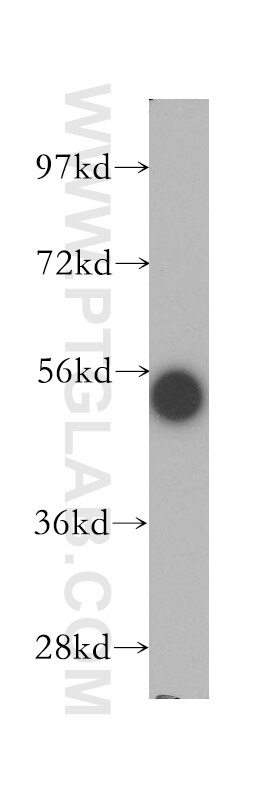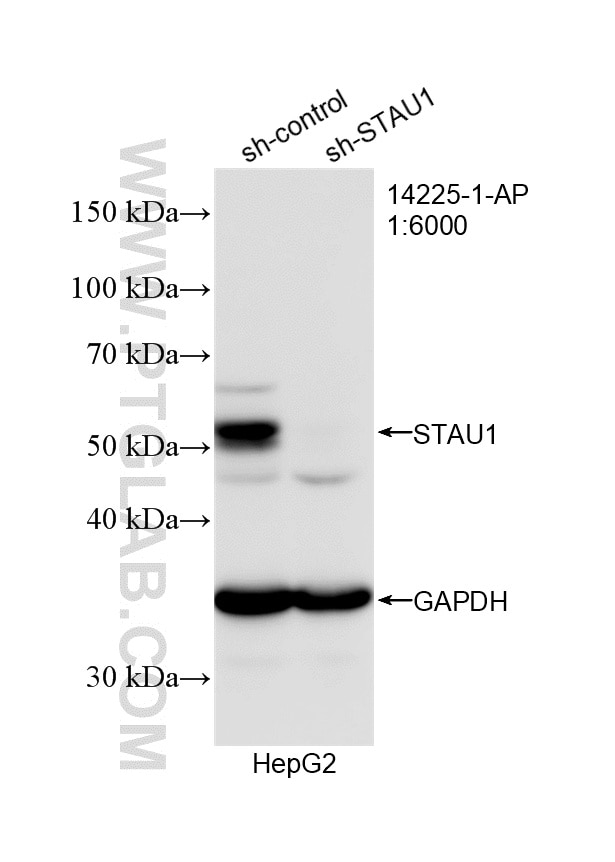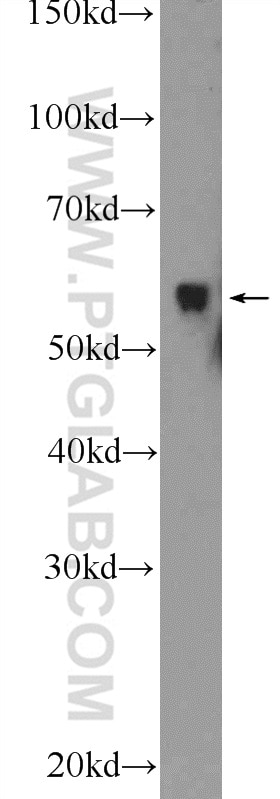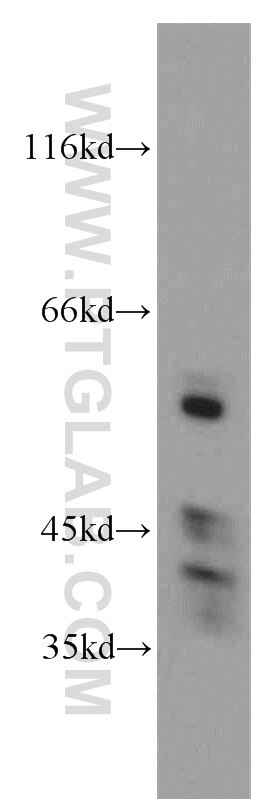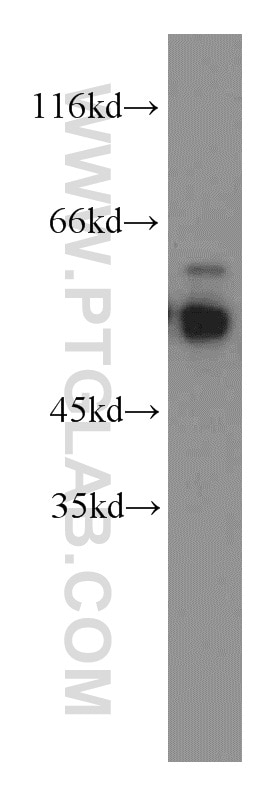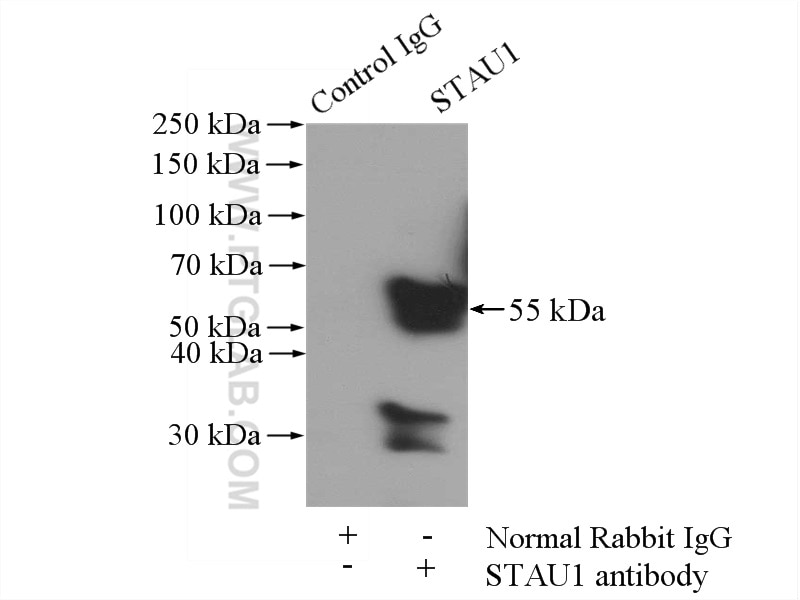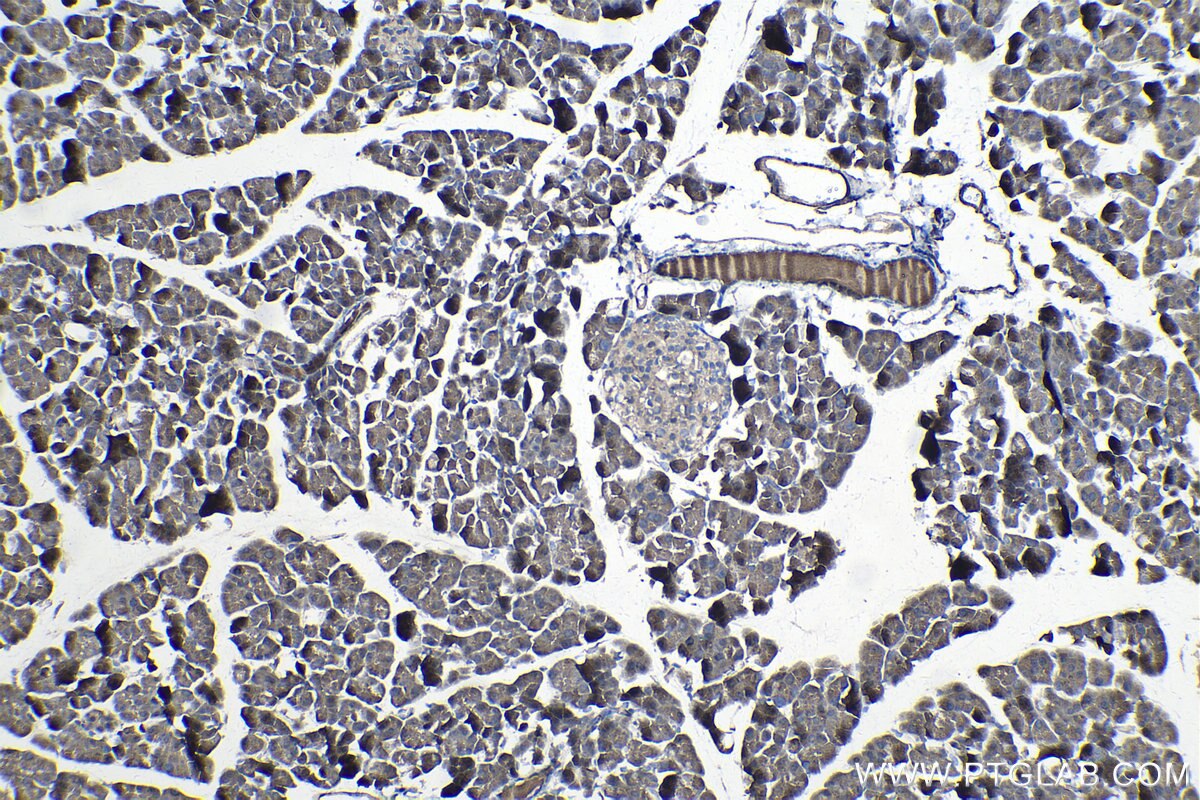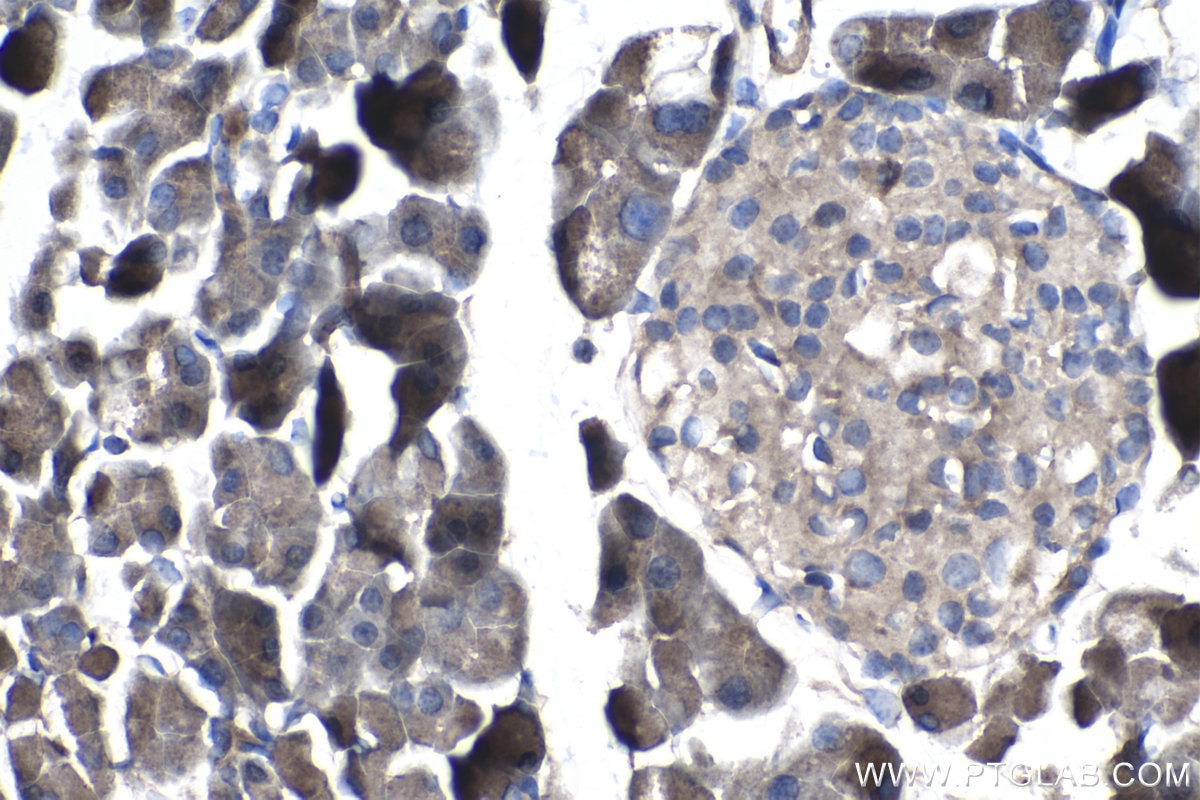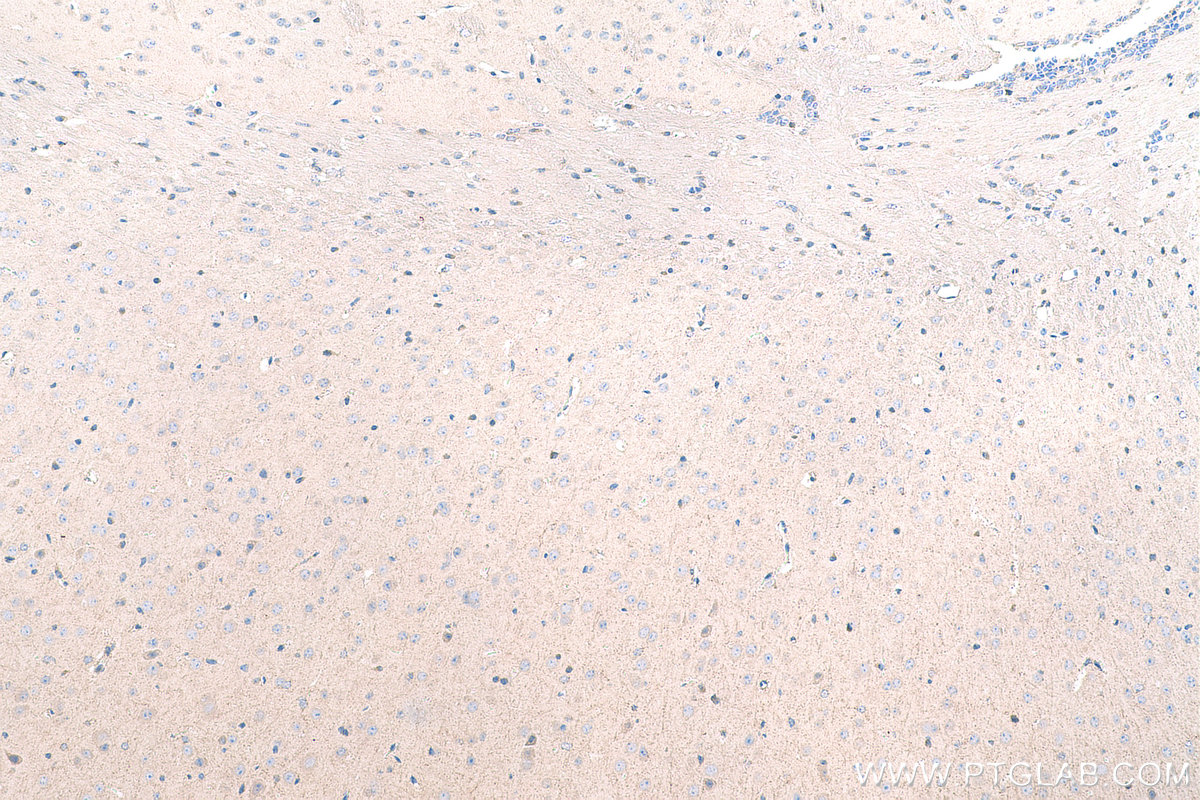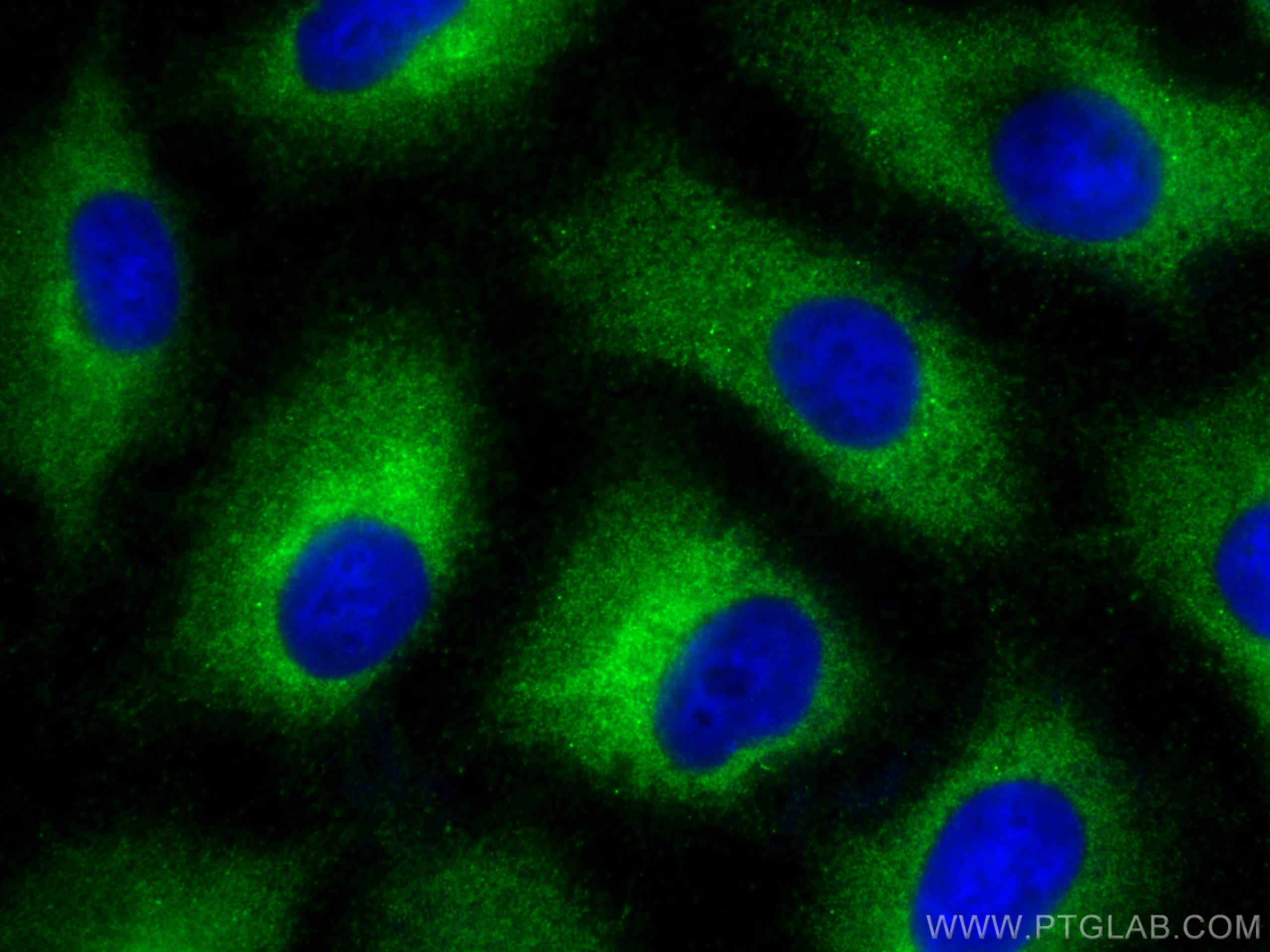- Phare
- Validé par KD/KO
Anticorps Polyclonal de lapin anti-STAU1
STAU1 Polyclonal Antibody for WB, IHC, IF/ICC, IP, ELISA
Hôte / Isotype
Lapin / IgG
Réactivité testée
Humain, rat, souris et plus (2)
Applications
WB, IHC, IF/ICC, IP, RIP, ELISA
Conjugaison
Non conjugué
N° de cat : 14225-1-AP
Synonymes
Galerie de données de validation
Applications testées
| Résultats positifs en WB | tissu cérébral humain, cellules HepG2, cellules K-562, tissu cérébral de souris |
| Résultats positifs en IP | tissu cérébral de souris |
| Résultats positifs en IHC | tissu cérébral de souris, tissu pancréatique de souris il est suggéré de démasquer l'antigène avec un tampon de TE buffer pH 9.0; (*) À défaut, 'le démasquage de l'antigène peut être 'effectué avec un tampon citrate pH 6,0. |
| Résultats positifs en IF/ICC | cellules A549, |
Dilution recommandée
| Application | Dilution |
|---|---|
| Western Blot (WB) | WB : 1:500-1:3000 |
| Immunoprécipitation (IP) | IP : 0.5-4.0 ug for 1.0-3.0 mg of total protein lysate |
| Immunohistochimie (IHC) | IHC : 1:500-1:2000 |
| Immunofluorescence (IF)/ICC | IF/ICC : 1:200-1:800 |
| It is recommended that this reagent should be titrated in each testing system to obtain optimal results. | |
| Sample-dependent, check data in validation data gallery | |
Applications publiées
| KD/KO | See 4 publications below |
| WB | See 17 publications below |
| IHC | See 1 publications below |
| IF | See 2 publications below |
| RIP | See 4 publications below |
Informations sur le produit
14225-1-AP cible STAU1 dans les applications de WB, IHC, IF/ICC, IP, RIP, ELISA et montre une réactivité avec des échantillons Humain, rat, souris
| Réactivité | Humain, rat, souris |
| Réactivité citée | Humain, porc, singe, souris |
| Hôte / Isotype | Lapin / IgG |
| Clonalité | Polyclonal |
| Type | Anticorps |
| Immunogène | STAU1 Protéine recombinante Ag5464 |
| Nom complet | staufen, RNA binding protein, homolog 1 (Drosophila) |
| Masse moléculaire calculée | 63 kDa |
| Poids moléculaire observé | 55 kDa |
| Numéro d’acquisition GenBank | BC050432 |
| Symbole du gène | STAU1 |
| Identification du gène (NCBI) | 6780 |
| Conjugaison | Non conjugué |
| Forme | Liquide |
| Méthode de purification | Purification par affinité contre l'antigène |
| Tampon de stockage | PBS with 0.02% sodium azide and 50% glycerol |
| Conditions de stockage | Stocker à -20°C. Stable pendant un an après l'expédition. L'aliquotage n'est pas nécessaire pour le stockage à -20oC Les 20ul contiennent 0,1% de BSA. |
Informations générales
Staufen1 (STAU1)-mediated mRNA decay (SMD) degrades translationally active mRNAs that bind the double-stranded (ds)RNA binding protein STAU1 within their 3'-untranslated regions (3'UTRs) [PMID:21307942]. STAU1 can binds to stem structures and protect Dvl2 mRNA from degradation by associating with the secondary structure in the U1 region which is located at 5′ position of second U stretch in the U2 region [PMID:17510634]. It has a role in specific positioning of mRNAs at given sites in the cell by cross-linking cytoskeletal and RNA components, and in stimulating their translation at the site. There are two isoforms of STAU1 protein and the molecular weight of two isoforms are repectively 63 kDa and 55 kDa
Protocole
| Product Specific Protocols | |
|---|---|
| WB protocol for STAU1 antibody 14225-1-AP | Download protocol |
| IHC protocol for STAU1 antibody 14225-1-AP | Download protocol |
| IF protocol for STAU1 antibody 14225-1-AP | Download protocol |
| IP protocol for STAU1 antibody 14225-1-AP | Download protocol |
| Standard Protocols | |
|---|---|
| Click here to view our Standard Protocols |
Publications
| Species | Application | Title |
|---|---|---|
Nature hiCLIP reveals the in vivo atlas of mRNA secondary structures recognized by Staufen 1.
| ||
Cell Metab NEAT1 is essential for metabolic changes that promote breast cancer growth and metastasis. | ||
Mol Cell Gain of Additional BIRC3 Protein Functions through 3'-UTR-Mediated Protein Complex Formation. | ||
Nat Commun Genome-wide enhancer-gene regulatory maps link causal variants to target genes underlying human cancer risk | ||
Nucleic Acids Res Comprehensive analysis of the BC200 ribonucleoprotein reveals a reciprocal regulatory function with CSDE1/UNR. |
